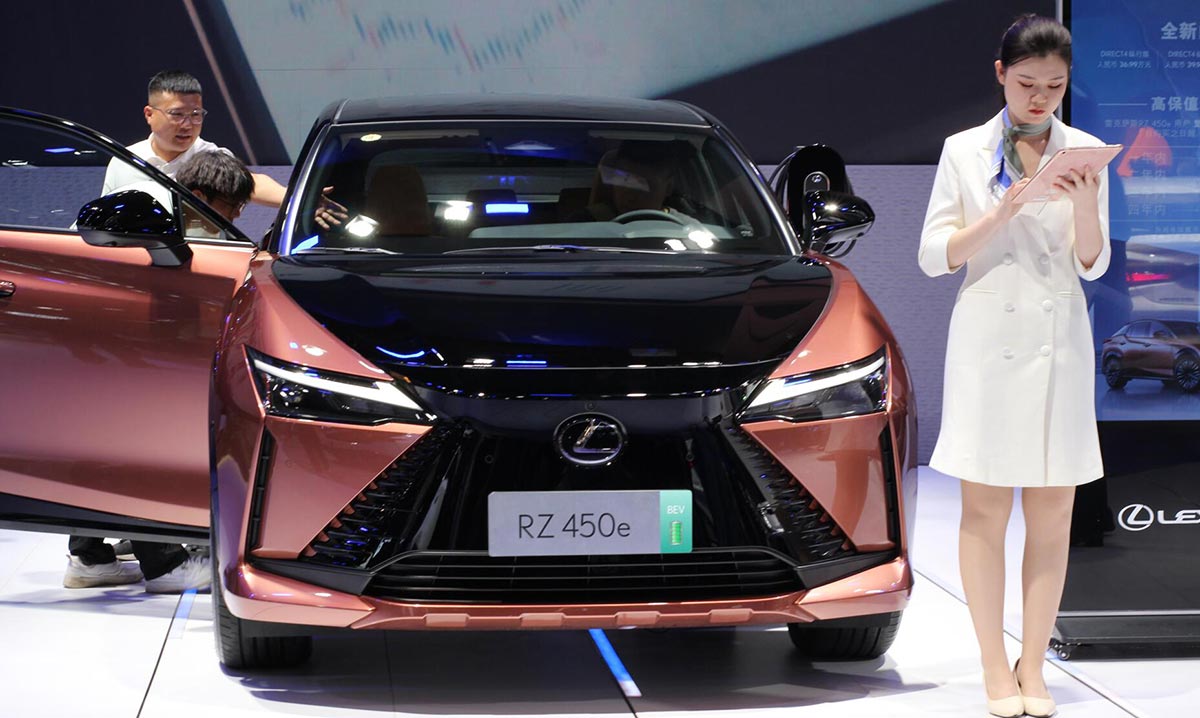Lexus Plans to Establish a Fully-Owned Manufacturing Plant in China with Initial Production of UX Hybrid and One BEV, Ochilgan hisobot
Lexus Aims to Construct a Wholly-Owned Factory in China for Electric Vehicle Production

Chinese media reports indicate that Lexus, the luxury division of Toyota, is planning to establish a fully-owned manufacturing facility in China. Dastlab, the factory would produce the Lexus UX hybrid and a new battery electric vehicle (BEV) model. These vehicles will be marketed both domestically in China and exported to international markets, including Japan, mahalliy OAV ma'lumotlariga ko'ra.
Despite Chinese regulations currently tightening around auto factory capacity, Lexus intends to proceed with plans for the wholly-owned plant. Biroq, the timeline for finalizing this initiative remains uncertain, as noted by sources close to the matter.
In a June 28th report, Bloomberg revealed that Toyota was in discussions with Shanghai authorities regarding the construction of a dedicated facility to manufacture Lexus electric vehicles (EV). The report indicated that Toyota sought similar incentives to those offered to Tesla, including tax breaks, policy support, land grants, and the unique opportunity to directly own and operate factories in China without requiring a local joint venture partner.
Teslaning Shanxay Gigafactory, which commenced construction in January 2019 and began operations by the end of the same year, marked China’s first wholly foreign-owned auto manufacturing project. Prior to this, foreign automakers were required to form joint ventures with local partners to manufacture vehicles in China.
Tesla’s Shanghai factory has since grown to become its largest globally, serving both the domestic Chinese market and acting as an export hub.
Toyota, despite being the world’s top-selling automaker, has experienced a decline in market share in China, a trend observed among other Japanese automakers. China represents Toyota’s third-largest market, following the United States and Japan.
The slow pace of electrification has hindered Toyota’s growth in China’s new energy vehicle (NEV) bozor, as noted by Chinese media outlet 36Kr. Toyota’s passenger car joint ventures in China, GAC Toyota and FAW Toyota, both reported decreased sales in the first half of the year.
Specifically, GAC Toyota sold 362,171 birliklar, a 15.70% decrease year-over-year, while FAW Toyota sold 323,803 birliklar, a 12.1% decrease compared to the same period in the previous year, according to data from the China Passenger Car Association (CPCA).

 Xitoyda avtomobil
Xitoyda avtomobil